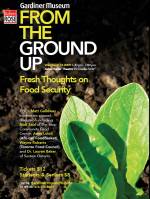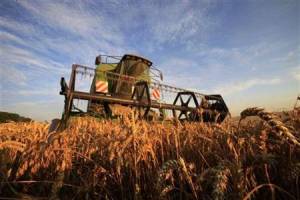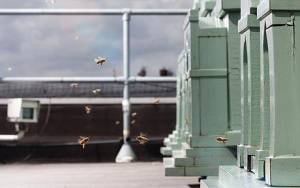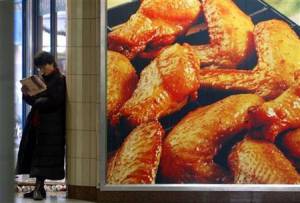
Pages in this Folder:

Related Folders:
See also Department Site Map
Publications:
Market-related videos
Comments?
For the basics, see
- Website & Privacy Policies
- How To Get Involved
- The Role of the Park
Search options:
Department Site Map
Custodians:
 Food News 2009
Food News 2009
Quick Page Table of Contents
Scanning...
Food News 2009
posted on December 18, 2009
A Tale of Two Dufferins
By: Erin Balser
Published: December 16, 2009
Source: books.torontoist.com/Yesterday, this Books@Torontoist editor interviewed Sarah Elton about her recent collection of literary pieces about Toronto, City of Words. Today, we excerpt one of the contributions to the book, novelist Anand Mahadevan’s ode to Dufferin Street and his father.
subzi bazaar
by Anand Mahadevan
Walking south of Bloor on Dufferin Street, one is presented with two choices. To the right is the Dufferin Mall anchored by one of Canada’s busiest Wal-Marts, a prodigiously stocked No Frills supermarket, and scores of generic mall stores squeezed cheek-to-jowl with their backs to the city. To the left, a large grove of trees flanks an outdoor ice rink and a grassy pathway hosting a weekly farmers’ market. Beyond them are a basketball court, soccer fields, and extensive children’s play areas.
posted on November 09, 2009
Mould, Slime Found at Listeria-Stricken Meat Plant
Published: 11/09/09
Source: The Canadian PressOTTAWA - A top-to-bottom scrubbing after a deadly listeriosis outbreak apparently didn't fully cleanse a Maple Leaf Foods plant of mould, slime and meat debris, newly released documents show. Inspectors found a troubling lack of hygiene at the company's Toronto facility just weeks after it reopened last year from a temporary shutdown for cleaning, according to inspection reports.
posted on October 29, 2009
Something smells: A local garlic shortage?
Toronto woman's network supplies neighbourhood
By: Julianna Cummins
Published: October 29, 2009
Source: National Post"The struggle to keep up with demand for Ontario garlic after a difficult growing season has a Toronto woman creating a network to distribute a limited supply in her community.
For the past three years, Mary-Margaret McMahon has made sure that her family stored eight pounds of local Ontario garlic to last through the winter. Early last week, Ms. McMahon's husband came back from the East York farmer's market with bad news: There was no more Ontario garlic.
"Then I started getting panicky, because I knew we were out at East Lynn, East York was out," said Ms. Mc-Mahon, listing other farmers' markets. Then, she found out that the Dufferin Grove Farmers' Market was out as well, and no more was coming.
Ms. McMahon called Anne Freeman, the manager of the Dufferin Grove Farmer's Market, who referred Ms. McMahon to a friend with a connection to a garlic farm in Little Current, Manitoulin Island."
How long does a virus last
Survival of Two Avian Respiratory Viruses on Porous and Nonporous Surfaces
A. Tiwari, Devi P. Patnayak, Yogesh Chander, Minakshi Parsad, and Sagar M. GoyalA
Department of Veterinary Population Medicine, College of Veterinary Medicine, University of Minnesota, 1333 Gortner Avenue, St. Paul, MN 55108
A Corresponding author
Abstract
The transmission of pathogens from infected to susceptible hosts may occur through contaminated fomites and inanimate objects. This type of transmission depends on the ability of the pathogens to survive in the environment. In this report, we describe the survivability of two avian respiratory viruses, e.g., avian metapneumovirus and avian influenza virus on 12 different porous and nonporous surfaces. The viruses survived on some of the surfaces for up to 6 days postcontamination but not after 9 days.
Both viruses survived longer on nonporous surfaces than on porous ones. One of the reasons for poor survival on porous surfaces could be inefficient elution of virus from these surfaces. These results should be helpful in determining how long the premises should be left vacant after an outbreak of these viruses has occurred in poultry houses.
Roy E Costa, R.S., M.S./M.B.A. Public Health Sanitarian Consultant Environ Health Associates, Inc 1.386.734.5187 www.haccptraining.org, www.safefoods.tv rcosta1@cfl.rr.com
posted on October 15, 2009
Agri-chemical companies are both breeding and killing bees
Agri-chemical companies like Syngenta don’t just make the chemicals that have been blamed for the decline in bees; they also breed the bees that are being used as a replacement for wild pollinators
By: Tom Levitt
Published: 13th October, 2009
Source: http://www.theecologist.orgThe new documentary, ‘Vanishing of the Bees’ - out in UK cinemas this week - once again blames the spread of neonicotinoid pesticides for the decline in honeybee populations.
Neonicotinoids are a comparatively new group of synthetic chemicals used as a coating for agricultural seeds and in pot plants. The chemicals spread throughout the plant and into the nectar and pollen that bees then eat.
posted on October 13, 2009
Turkey wars
'When you're confined ... things spread easier'
By: Margaret Webb
Published: Oct 10 2009
Source: The StarIf you're eating organic turkey this weekend, savour it, because by next Thanksgiving it may be easier to buy crack cocaine in Ontario than a drug-free bird.
Here's why: While the turkey industry marketing board tells growers to confine their turkeys indoors to reduce the chance of transmission of viruses from wild birds, new organics standards administered by the Canadian Food and Inspection Agency mandate raising organic birds outdoors.
posted on October 10, 2009
Locavore News
By: Elbert van Donkersgoed
Published: October 7, 2009
Source: PlumblineOffer of free potatoes causes massive traffic jam
Call it Spudapalooza. That was no rock concert spawning the massive line-up of cars that gridlocked traffic on the Manning Freeway northeast of Edmonton for several hours on Saturday — it was a potato giveaway. An alliance of community groups and a local potato farmer decided to give away 45,000 kilograms of free spuds as a way of promoting locally grown food and to draw attention to the valuable farm land being used for urban development. Globe and Mail story.
posted on October 05, 2009
Everything I Want to Do Is Illegal
By: Joel Salatin
Published: September 2003
Source: Acresusa.comEverything I want to do is illegal. As if a highly bureaucratic regulatory system was not already in place, 9/11 fueled renewed acceleration to eliminate freedom from the countryside. Every time a letter arrives in the mail from a federal or state agriculture department my heart jumps like I just got sent to the principal’s office.
From The Ground Up
Gardiner Museum
Wednesday September 23, 2009
Fresh Thoughts on Food Security
ONLINE http://www.gardinermuseum.com
BY PHONE 416.586.8080
posted on September 06, 2009
Smart chickens not duped by GM feed
By: Eleanor Momberg
Published: 03 August 2009
Source: www.gmwatch.orgSmart chickens weren't duped by foul play
Independent Online (SA), August 2 2009
Chickens refusing to eat the maize they had been fed has led to the discovery that their feed had been genetically modified to include a well-known weed and insect killer.
Strilli Oppenheimer was recently approached by Dawid Klopper, the head gardener at the family estate, Brenthurst, informing her that her indigenous African chickens were refusing to eat the mealies in the chicken feed bought from a large supplier. Concerned that the birds may be ingesting genetically modified maize, she instructed Klopper to have the maize tested.
posted on August 28, 2009
Street food program criticized over red tape
Published: August 27, 2009
Source: CBC NewsA city program aimed at providing a diverse array of street food to Torontonians is facing criticism for saddling vendors with too many regulations and expenses.
The Toronto A La Cart pilot project has street vendors selling foods such as souvlaki, kebabs and jerk chicken from city-approved carts.
There are eight vendors taking part in the program, which kicked off earlier this summer. But one of those eight — a vendor who sold Greek food at Nathan Phillips Square — recently closed indefinitely.
Other vendors seem to be experiencing a number of growing pains as well.
posted on August 27, 2009
History Can No Longer Guide Farmers, Investors: U.N.
A farmer harvests a field of wheat in Hirson,
northern France, August 6 2009.
Photo: Pascal RossignolBy: Laura MacInnis
Published: 27-Aug-09
Source: RreutersGENEVA - Climate change has made history an inaccurate guide for farmers as well as energy investors who must rely on probabilities and scenarios to make decisions, the head of a United Nations agency said on Wednesday.
Michel Jarraud, director-general of the World Meteorological Organization, said that water and temperature projections have become more valuable than the historical weather data that long governed strategy in agriculture, hydro-electric power, solar technology and other fields.
"The past is no longer a good indicator of the future," the WMO chief told a press briefing, describing climate modeling and prediction as key to fisheries, forestry, transport and tourism, as well as efforts to fight diseases such as malaria.
posted on August 08, 2009
Honey that is the bees' knees
Fortnum & Mason's rooftop beehives Photo: ANDREW CROWLEYAs the Government urges people in the city to keep bees in their gardens, Judith Woods visits Fortnum & Mason's very own rooftop beehives.
By: Judith Woods
Published: 05 Aug 2009
Source: http://www.telegraph.co.ukI am on the roof of Fortnum & Mason, in Piccadilly, and it's absolutely buzzing. Before me in the morning haze is the capital's finest skyline: St Paul's, Westminster Abbey, the London Eye, and all is a hive of activity.
Or to be precise, four hives of activity. For here, six floors up, are Britain's most upmarket bees, housed in bespoke hives painted in Fortnum & Mason livery. It is from here that they take flight every day and head to Kensington, the window boxes of Belgravia and Mayfair, St James' Park and the herbaceous borders of Buckingham Palace, collecting pollen from the best addresses in London.
And later this month the rather superior honey that results will be sold in the store as Fortnum's Bees' Honey for the sum of £10 per half-pound jar. Admittedly, it's more than you'd pay at Sainsbury's, but it promises to have a unique flavour.
"Honey from urban bees is usually more complex and varied than those in the country, because people grow a wide variety of trees and flowers in their gardens," says Jonathan Miller, one of the store's grocery buyers, who dreamed up the idea of an in-house apiary.
From Grass to Glass
posted on July 10, 2009
Restaurant owner finds new way to recycle food waste
Published: June 30, 2009
Source: http://www.ksl.com/KAMAS -- Restaurants throw out a lot of food every day. In fact, Recycle Utah says 25 percent of restaurant food is wasted, but now one restaurant owner has an idea on what to do with it all.
Sean Wharton, owner of The Gateway Grill in Kamas, has an interesting way of dealing with food waste: He gives excess food his customers didn't pig out on to his pigs.
"I think it's my effort to give back to society and be more of a producer than a consumer," Wharton said. It always bugged Wharton how much food got tossed away, so he decided to have his restaurant staff throw extra food away in a separate bucket.
posted on June 20, 2009
CALIFORNIA: Egg fight breaks out over chicken welfare law
By: Tracie Cone
Published: June 19, 2009
Source: Associated Presshttp://www.google.com/hostednews/ap/article/ALeqM5iqxxXCGMk2PGauO4--8jleUWkNnwD98TUH7O1
FRESNO, Calif. -- By one of the biggest margins in California's rich initiative history, voters decreed last year that egg-laying hens must be able to stretch their wings without touching another bird or a cage wall. But the details of the new animal welfare law are bedeviling egg farmers. Some are even rumored to be breeding hens with shorter wings, a tactic producers deny with a laugh.
And a newly introduced bill in Sacramento would require competing farmers in other states to adopt California's standards if they want to sell eggs in the Golden State.
California's egg producers say they don't know how to comply with the vague language of the Prevention of Farm Animal Cruelty Act, short of allowing hens to range free.
posted on June 11, 2009
Act Now to Help Save America's Dairy Farmers
Press release from Food Democracy Now!
Since December 2008, the price that farmers are paid for the milk they produce has dropped over 50 percent -- the largest single drop since the Great Depression -- to a point far below the cost of production. This unprecedented collapse in prices has occurred in large part due to market manipulations and increased foreign imports by milk industry giants.
Increasingly, dairy farmers are at the mercy of these giants, such as the Dairy Farmers of America, the country's largest dairy "cooperative" which controls 40% of US milk production. Last year DFA was fined $12 million for price fixing by the US government and has also been implicated in the recent massive increase in imported milk products.
posted on June 11, 2009
Inspectors averaged 2 hours a day inside listeria-infected plant
Records show 25 instances of 15-minute inspections
Slicer machines were disassembled to allow
cleaning of internal components deep within
the equipment in the wake of listeria crisis.
(Maple Leaf Foods Inc./Canadian Press)By: David McKie
Published: June 10, 2009
Source: CBC NewsFederal inspectors spent an average of just under two hours a day at the meat plant at the centre of last summer's deadly listeriosis crisis in the months leading up to the outbreak of the food-borne illness, an analysis by CBC/Radio-Canada and the Toronto Star has found.
At least 22 people died after eating meat infected with the Listeria monocytogenes bacteria processed at the Maple Leaf Foods facility on Bartor Road in Toronto's north end.
Analysis by CBC/Radio-Canada and the Toronto Star showed inspectors at the Bartor Road facility spent most of their time on administrative tasks and little time on inspections.
Records, which were obtained through an access to information request, also show that inspectors spent 15 minutes inside the plant on 25 days between the beginning of 2007 and end of August, 2008.
In 2007, the average length of time spent on daily inspections of the plant was around two hours. In the first half of 2008, it dropped to an average of an hour and 20 minutes.
But in August, at the height of the listeria crisis, inspectors were averaging five hours and nine minutes a day.
"If you're only averaging 100 minutes or less or more a day, you have to ask yourself how can the inspectors adequately do their job in a facility from a federal, regulatory point of view," Liberal agriculture critic Wayne Easter, told CBC News.
posted on June 11, 2009
Film Aims To Expose Dangers In U.S. Food Industry
A Chinese woman reads newspaper beside
an advertisement for a U.S. fried chicken fast-food chain
in Shanghai, January 16, 2004.
Photo: Claro CortesBy: Christine Kearney
Published: 11-Jun-09
Source: reuters.comFilm Aims To Expose Dangers In U.S. Food Industry Photo: Claro Cortes NEW YORK - Bigger-breasted chickens fattened artificially. New strains of deadly E. coli bacteria. A food supply controlled by a handful of corporations.
The documentary "Food, Inc." opens in the United States on Friday and portrays these purported dangers and changes in the U.S. food industry, asserting harmful effects on public health, the environment, and worker and animal rights.
Big corporations such as biotech food producer Monsanto Co., U.S. meat companies Tyson Food Inc. and Smithfield Foods, and poultry producer Perdue Farms all declined to be interviewed for the film.
posted on June 10, 2009
US: Bird flu can linger in landfills
By: Emily Sohn
Published: June 9, 2009
Source: msnbc.comAfter an outbreak of the bird flu, most carcasses end up in landfills. There, according to a new study, the virus can survive for up to two years.
Landfills are designed to contain waste for far longer than that, so the practice is probably safe. Still, the new study suggests that waste managers might want to be particularly careful with how they dispose of infected birds.
"There are a lot of birds at landfills," said Shannon Bartelt-Hunt, an environmental engineer at the University of Nebraska-Lincoln. "If you think of landfills as reservoirs, you could have birds as vectors. Other animals could be vectors. Landfill personnel could be potentially exposed."
Bird flu, also known as avian influenza, mainly infects birds, including chicken, ducks and turkeys. But human cases are becoming more common, and there are fears that future mutations could help the virus more readily spread from person to person, possibly leading to pandemics.
When birds on a farm come down with the disease, farmers usually kill the entire flock because that's the only known way to subdue an outbreak. So far, hundreds of millions of birds have been killed by the flu or by efforts to control it. During one outbreak on a Virginia farm in 2002, four million birds were tossed out.
posted on May 18, 2009
Getting fresh in the city
Here's one advantage of Toronto's sweltering summer: our fruit and vegetable markets. A decade ago, there were a handful at best, but as Sasha Chapman reveals, farmers these days are setting up stalls all over the city, selling local produce when it is at its crisp and delectable best
By: SASHA CHAPMAN
Published: MAY 16, 2009
Source: The Globe and Mail"It's hard to believe we're in a recession: farmers' markets have never been busier in this city, from the grand stalwart in the north St. Lawrence building to modest neighbourhood spots like the MyMarket at Bloor and Borden or the Sunshine Market Garden at the Queen Street CAMH.
And there's more reason than ever to stay in the city on Saturdays, now that three destination markets are operational: St. Lawrence, Evergreen Brick Works and The Stop's newly minted Green Barns at Wychwood.
Urban, locavore and decidedly idealistic, Toronto's local food movement gained momentum with the opening of Riverdale in 2000. Riverdale, and the dozens of Toronto markets that have opened since, boast a laidback, friendly atmosphere, spawning all sorts of community events and new initiatives, from harvest suppers to film nights
At this time of year, farmers' markets are opening every week; by mid-June, it would be possible to spend every day of the week at one."
posted on May 12, 2009
Cull entire pig herd, Alberta farmer urges
Alberta farmer Arnold Van Ginkel says he's
frustrated with how officials are handling the
quarantine of his pig herd after some of the
animals tested positive for swine flu. (CBC)Published: May 11, 2009
Source: CBC NewsAlberta farmer Arnold Van Ginkel says he's frustrated with how officials are handling the quarantine of his pig herd after some of the animals tested positive for swine flu. Alberta farmer Arnold Van Ginkel says he's frustrated with how officials are handling the quarantine of his pig herd after some of the animals tested positive for swine flu. (CBC)
The owner of an Alberta pig farm placed under quarantine by Canadian authorities because some of the animals were sick with swine flu said Monday he doesn't understand why his entire herd wasn't culled right away.
"It's a small farm. Take the pressure off everybody. I think even off the whole world, over the whole pig industry, everywhere. Get rid of the herd," Arnold Van Ginkel said in his first media interview. "It's already going on over nine, 10 days? It's a waste of time and money."
posted on May 08, 2009
Fears of honeybee demise unfounded: Study
But biologists 'don't present the whole picture,' Guelph bee expert says
SHUTTERSTOCKBy: Joseph Hall
Published: May 07, 2009
Source: The StarA frightening buzz over the imminent demise of honeybees – and the disappearance of their critical pollinating prowess – is unfounded, according to a new Canadian-led study that shows their global numbers actually growing.
High-profile stories during the past three years detailing the mysterious decimation of thousands of bee keeper colonies had led to fears that the human food supply was being imperilled by a "pollination crisis," says the study, which appears today in the journal Current Biology.
posted on May 06, 2009
Germany Bans Genetically Modified Corn
Published: 04/14/2009
Source: Spiegel OnlineGermany has banned the cultivation of GM corn, arguing that the corn breed MON 810 is dangerous for the environment. But that argument might not stand up in court, and Germany could face fines totaling millions of euros if Monsanto decides to challenge the prohibition.
Under the new regulations, the cultivation of MON 810, a GM corn produced by Monsanto, will be prohibited in Germany. A clause in EU law allows individual countries to impose such bans. Environmental groups welcomed the ban, pointing out that numerous scientific studies demonstrated GM corn was a danger to the environment.
posted on April 28, 2009
Death knell sounds for Europe's beekeepers
By: Pete Harrison
Published: 28-Apr-09
Source: ReutersBRUSSELS (Reuters) - Europe's beekeeping industry could be wiped out in less than a decade as bees fall victim to disease, insecticides and intensive farming, international beekeeping body Apimondia said on Monday.
"With this level of mortality, European beekeepers can only survive another 8 to 10 years," Gilles Ratia, president of Apimondia, told Reuters.
"We have had big problems in southwest France for many years, but also now in Italy and Germany."
Last year, about 30 percent of Europe's 13.6 million hives died, according to Apimondia figures. Losses reached 50 percent in Slovenia and as high as 80 percent in southwest Germany.
posted on April 20, 2009
Pennsylvania Pie Fight: State Cracks Down on Baked Goods
Inspector Nabs Homemade Desserts At St. Cecilia Church's Lenten Fish Fry
By: KRIS MAHER
Published: April 10, 2009
Source: The Wall Street JournalROCHESTER, Pa. -- On the first Friday of Lent, an elderly female parishioner of St. Cecilia Catholic Church began unwrapping pies at the church. That's when the trouble started.
A state inspector, there for an annual checkup on the church's kitchen, spied the desserts. After it was determined that the pies were home-baked, the inspector decreed they couldn't be sold.
"Everyone was devastated," says Josie Reed, a 69-year-old former teacher known for her pumpkin and berry pies.
posted on April 06, 2009
Activists fear agribusiness and biotechnology lobbyists are conspiring to outlaw organic farming and home gardens
Family Farmers Fear Being Run Over by Food Safety Juggernaut
Organic and Local Farmers Seek Protections in WashingtonPublished: April 3, 2009
Source: PRNewswireCORNUCOPIA, Wis., April 3 /PRNewswire-USNewswire/ — Momentum is building in Congress for new food safety reforms aimed at addressing the growing cycle of food contamination outbreaks. But concerns are also being raised cautioning legislators not to trample organic farmers, backyard gardeners and consumers of fresh local foods in the rush to fix food safety problems.
“There is no question that our increasingly industrialized and concentrated food production system needs a new regulatory focus,” said Will Fantle, of The Cornucopia Institute, a Wisconsin-based organic food and agriculture watchdog. “No one disputes that our food safety system is broken,” Fantle added.
In the last several years, contamination of bagged spinach, lettuce, tomatoes, peppers, beef and peanuts have sickened thousands of Americans. And currently a massive recall of food products containing pistachios is underway.
posted on February 22, 2009
Bringing Local Food Home: Legal, Regulatory and Institutional Barriers to Local Food
By: Maureen Carter-Whitney
Published: December 2008
Source: Friends of the Greenbelt Foundation - Occasional Paper SeriesDescription: Ontario's Greenbelt, covering 1.8 million acres from Niagara Falls to Tobermory to Peterborough, contains some of the most fertile farmland in Canada including the Holland Marsh and the Niagara Peninsula tender fruit and grape area. There are over 7,000 farms whose production capacity and proximity to urban areas present a unique opportunity to feed Ontario’s diverse population. Despite the strong demand for local food and a robust seasonal supply, the market is not yet delivering local food to the extent that consumers want it due to a variety of systemic barriers. This paper examines a sub-set of those barriers—those arising out of laws, regulations or international agreements. As the research makes clear, all of these barriers are surmountable, and some specific actions to be taken by policymakers to overcome them are identified.
posted on February 21, 2009
CAMEMBERT CLASH
The French Cheese Wars
By: Ullrich Fichtner
Published: 02/20/2009
Source: SPIEGEL ONLINEIt was a typical globalization-era war that pitted tradition against profits. A large cheese factory wanted to change the Camembert recipe and began a dirty fight against small producers. This time, though, tradition emerged victorious.
When Luc Morelon was still convinced that this was a winnable war, he was willing to give interviews in his office on the 30th floor of the Montparnasse Tower, with its view of the Eiffel Tower and of a deceptively peaceful-looking sea of shimmering Parisian rooftops in the morning mist. Wearing a tie with a pattern of little colorful goats on it, Morelon, a heavy-set, white-haired man, sat at his desk facing a laptop filled with data and charts of his company, Lactalis. With 125 plants worldwide, 32,000 employees and €9.6 billion ($12.2 billion) in annual sales, Lactalis is Europe's largest cheese producer, a global giant and a company that is easy to hate.
He had had a grueling year as the spokesman for Lactalis. Now it was winter again and Morelon, the company's powerful director in charge of communication and disinformation, had gotten used to playing the role of villain. He curtly rejected the first few requests for an interview, writing, without the customary niceties and French flourishes, that he was no longer available for further attacks by the "self-proclaimed custodians of tradition," and that he was tired of listening to the chants of "the small against the big" and the constant talk of a "Camembert war."
posted on January 26, 2009
Drought-hit California farmers abandoning vegetable fields
Published: January 26, 2009
Source: The Associated PressConsumers may pay more for spring lettuce and summer melons in grocery stores now that California farmers have started abandoning their fields in response to a crippling drought.
California's sweeping Central Valley grows most of the fruits and vegetables in the United States in normal years, but this winter thousands of hectares are turning to dust as the state hurtles into the worst drought in nearly two decades.
Federal officials' recent announcement that the water supply they pump through the nation's largest farm state would drop further was enough to move John (Dusty) Giacone to forego growing vegetables so he can save his share to drip-irrigate 400 hectares of almond trees.


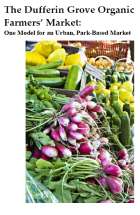
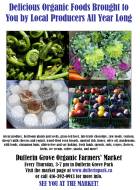

 Printer friendly version
Printer friendly version
